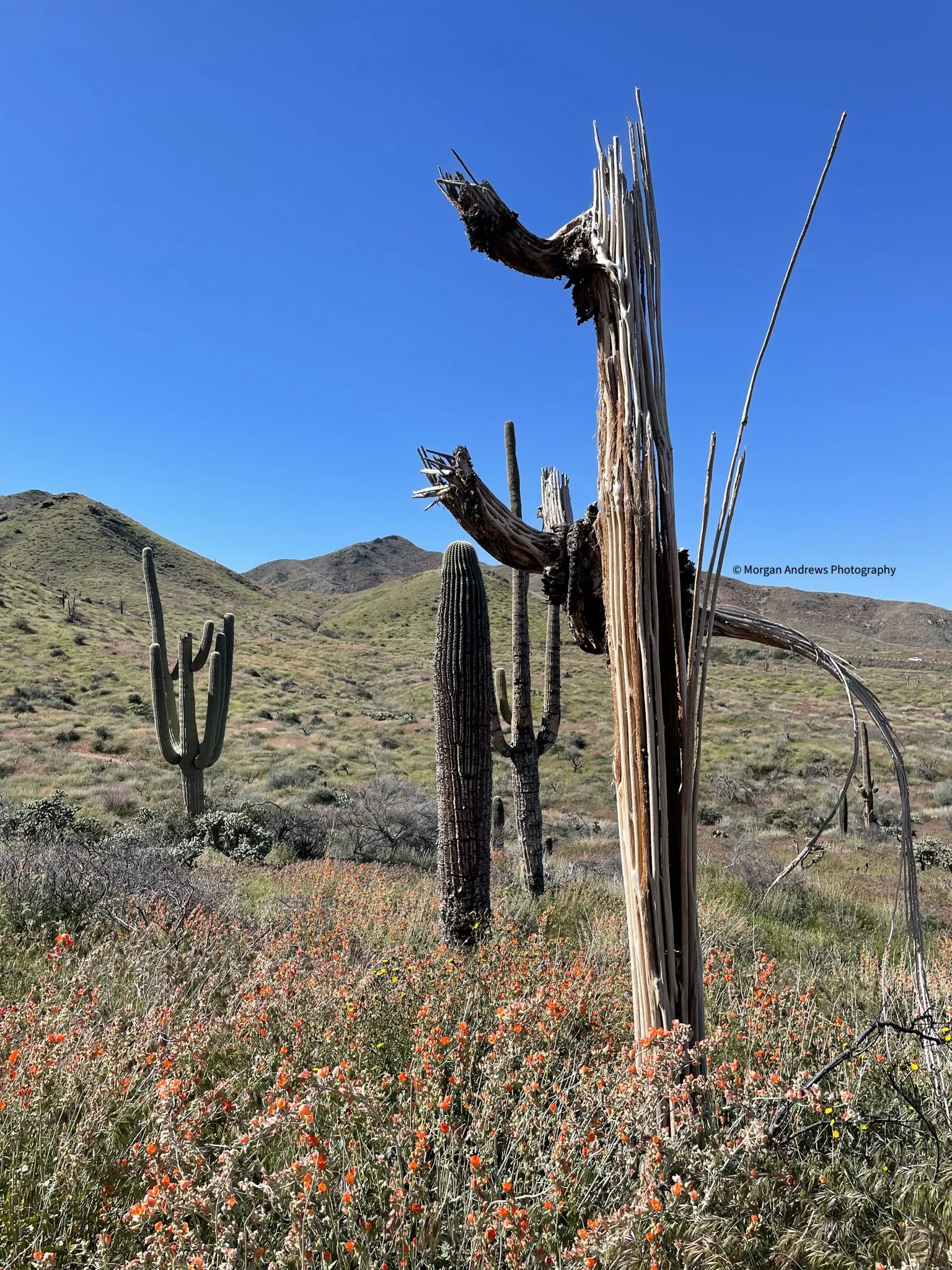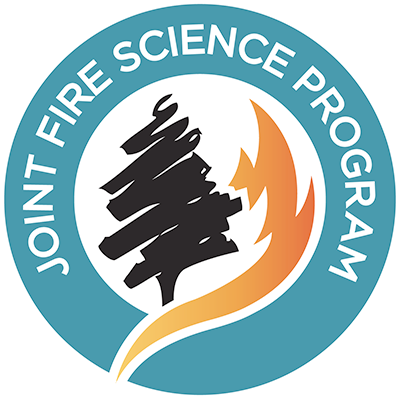JFSP: Joint Fire Science Program
Post-fire social-ecological communities: how social and ecological conditions predict post-fire recovery and state transition
Problem Statement: Decision-makers aim to promote community resilience following wildfire, but do not always know which social and ecological factors can best be addressed in order to do so. We identify these factors using (a) qualitative interview data, and (b) coupled social-ecological resilience modeling applied to six post-fire case study systems, quantifying the relationship between ecological and social resilience factors in these systems. Case study fires to include a more and less recent fire in each of three dominant southwestern vegetation types. This design allows us to identify resilience factors common to multiple system types.
Objectives: We have organized our work around six objectives. First, we plan to use a needs assessment to form relationships with case study informants spanning these human communities, to understand elements of ecological and social systems relevant to their recovery plans. Second, we will integrate the learning from this needs assessment to develop initial ecological resilience maps for each case study. Those maps will serve as context for our third objective, which is to conduct semi-structured interviews exploring struggles and successes in each case study. Fourth, we plan to convene focus groups of decision-makers in each case study to examine scenarios of recovery, assessing the influence of ecological and social drivers on recovery trajectories. Fifth, we will generate coupled-systems community resilience maps weighting these drivers, so that we can use sensitivity analyses to identify areas of intervention. Resulting maps can assist decision-making by identifying areas of influence in various management scenarios. Finally, our sixth objective is to conduct a results delivery workshop and webinar to extend the reach of our findings beyond our case studies.
We systematically selected six fire events that caused both social and ecological impacts: two that occurred in Sonoran Desert ecosystems, two in chaparral/pinyon-juniper woodland, and two in ponderosa pine forests. In each of these ecosystem-based fire pairings, one fire was recent (2018-2021) and the other older (2010-2017). Each case study location has at least one municipality that experienced impacts associated with that fire. The use of temporally staggered cases in similar ecosystems will allow us to provide rich comparisons of progress around social-ecological recovery and resilience that are rare in the existing literature (Colavito 2021; Paveglio and Edgeley 2017).
Benefits: This work will assist decision-makers in managing for resilience by providing to them information about social and ecological factors relevant to recovery as well as spatial distribution of those factors and weighted maps that can be manipulated by managers to visualize the effect on resilience of various scenarios. Since our work spans a diversity of ecosystems and a range of time-since-fire, it will support managers beyond those case study systems in identifying those social and ecological factors that may be areas of intervention in their own systems.
-
Clare Aslan, PhD
Associate Director and Associate Professor, School of Earth and Sustainability
Co-Director, Center for Adaptable Western Landscapes, Northern Arizona University
-
Sara Souther, PhD
Assistant Research Professor, School of Earth and Sustainability
Core member, Center for Adaptable Western Landscapes, Northern Arizona University
Catrin Edgeley, PhD
Northern Arizona University, School of Forestry
Alexander Evans, PhD
Forest Guild
Andrea Thode, PhD
Northern Arizona University, School of Forestry
Ann Youberg, PhD
University of Arizona-Tucson, Arizona Geological Survey
Cody Stropki, PhD
-
Coming soon!
Products
-
Coming soon!
-
-
Coming soon!
-
Coming soon!

